Have you had bariatric surgery followed by successful weight loss and then hit a plateau? Or are you interested in trying to reset or revamp your weight loss journey? If so, this article about the pouch reset is for you.
Let’s start from the beginning
Bariatric surgery is one of the most successful treatments for morbid obesity. It can lead to significant weight loss and reduction in obesity-related diseases like diabetes and heart disease. Although bariatric surgery may seem like a quick fix to morbid obesity and its related complications… It is not always an easy journey. Bariatric surgery comes with its own set of challenges and every person’s journey is unique.
One of the challenges that many people do not often realize is the difficulty you might experience with long-term weight loss or the regaining of weight years after surgery. This is a common challenge that is often overshadowed by the rapid weight loss that occurs early on following bariatric surgery.
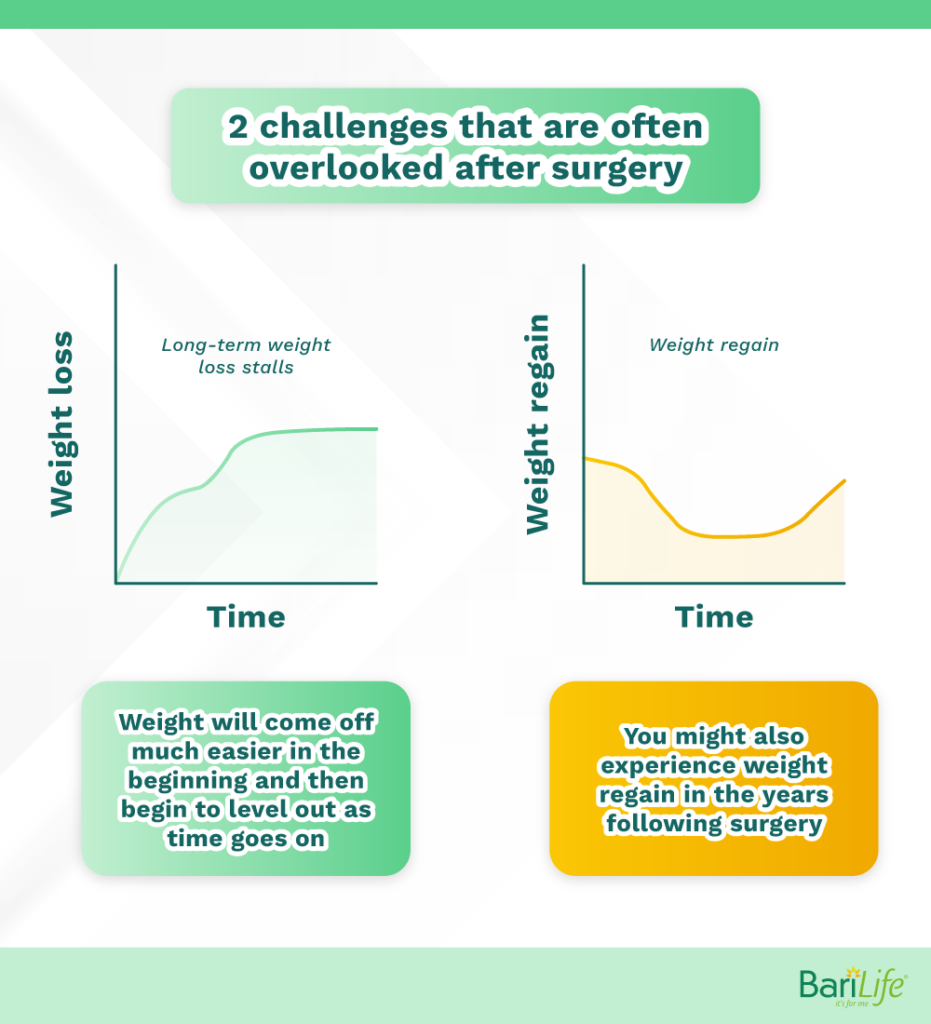
The honeymoon phase
In those first 6 months to a year following surgery, you will likely experience a honeymoon phase where weight loss comes relatively easy, obesity-related diseases may improve or resolve, and you can do more physical activity. In the honeymoon phase, your calorie and food intake are restricted due to your post-op diet and the changes in your stomach and hunger-related hormones. Because of these changes in diet, anatomy, and lifestyle, your weight may seem to just fall right off and it’s exciting!
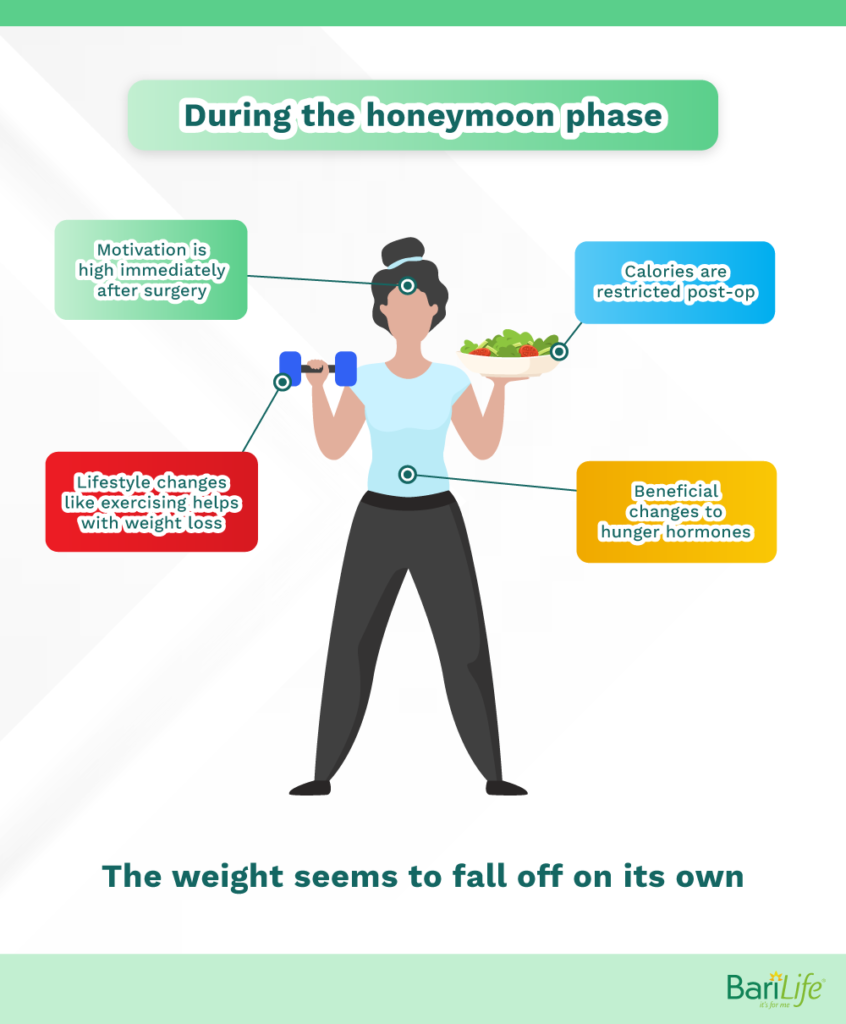
But, following that honeymoon phase, some new challenges regarding weight loss and motivation may begin to set in. Your weight loss may begin to plateau or level out, your appetite and food intake may begin to increase, and your motivation may begin to dwindle. These challenges can make maintaining your new weight difficult and continued weight loss seems like a losing battle.

I know this may seem a bit negative, but weight regain is more common than you might think following bariatric surgery. It is estimated that 20-30% of people who have had gastric bypass will have significant weight gain within the years following bariatric surgery.
So, if this is something you are struggling with, just know YOU ARE NOT ALONE and there are some things that can help you to overcome this plateau and help you to get back on track!
How to get back on track
The most commonly known diet technique to get back on track is called the pouch reset diet. The pouch reset diet is designed to help you combat unwanted weight gain and reduce stretching that may occur after bariatric surgery.
This diet was originally formulated to “shrink the size of your gastric pouch” but there is not much scientific research that supports this theory. Keep in mind that following bariatric surgery there will be a considerable amount of swelling and healing that needs to occur.
Once the swelling subsides and your stomach has healed you should expect your gastric pouch to be about 1.5 ounces after RYGB and 5-6 ounces following Sleeve gastrectomy.
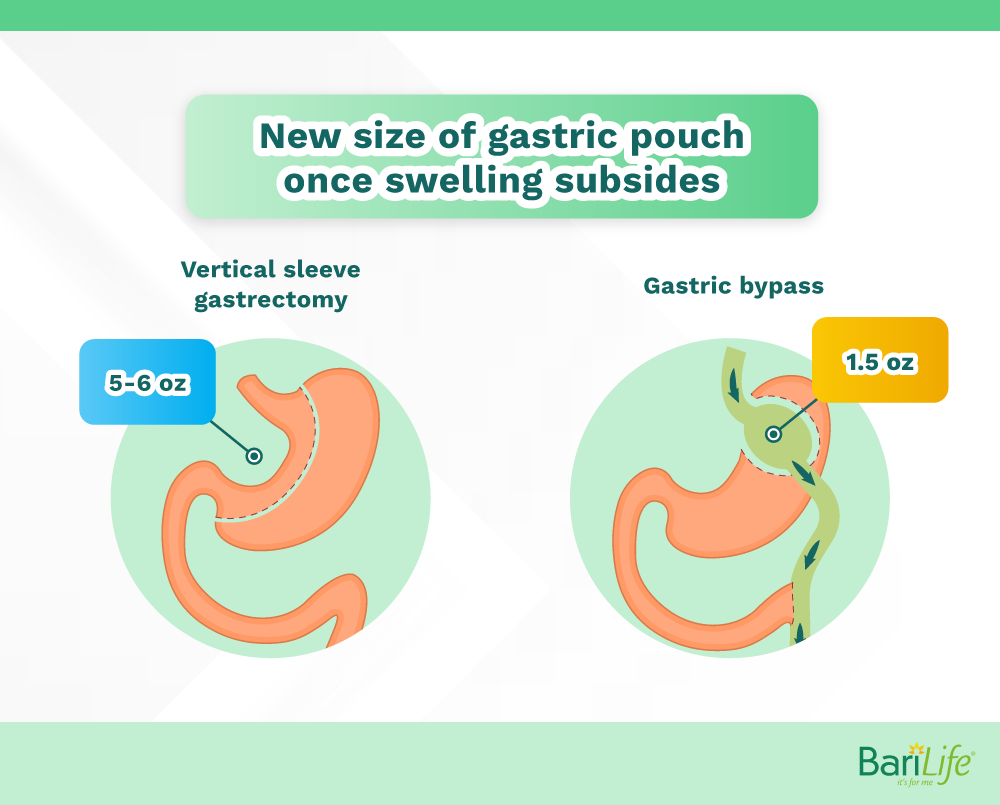
Research shows that in the years following bariatric surgery your stomach can dilate or stretch and this can be a predictor or indicator of weight regain. This means that reducing food intake and preventing dilation of the gastric pouch is an important element of successful weight loss.
Now you might be wondering since research doesn’t show that the pouch reset diet will shrink the size of my gastric pouch… Why are we even talking about it? Well, the pouch reset diet is still believed to be effective in resetting your hunger levels, eating habits, and weight loss.
Resetting your hunger levels means that you should feel more full and satisfied with less food intake which will lead to a reduction in the amount that you eat during mealtimes.
This will help to reduce weight gain and to prevent stretching of the gastric pouch. This diet or plan can be used with multiple forms of bariatric surgery including Gastric bypass, the gastric sleeve, and more.
In short, the pouch reset diet was created with the intention of shrinking your gastric pouch. It is now believed to be a method to help reset your hunger levels and enable you to eat smaller meals while still feeling satisfied.
So, what is the pouch reset diet?
The pouch reset diet is a short-term, low volume, high protein diet. Generally, when people recommend the pouch reset diet, they recommend a liquid or pureed diet but here at Bari Life, we know that an all-liquid diet isn’t the only or optimal way to reset your diet.
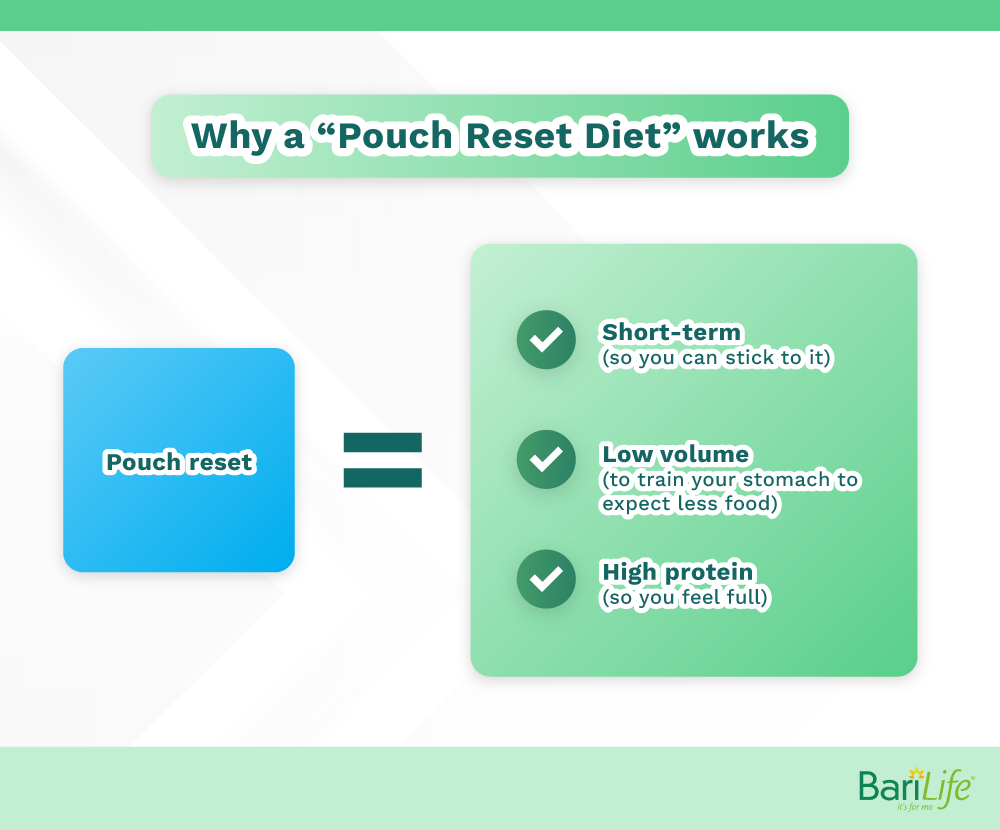
We recommend a diet that is low in volume, meaning small portions, low in calories, and high in protein. This high-protein element will help you to feel fuller longer and provide your muscles with adequate support.
What to expect when on the pouch reset diet
The pouch reset diet can be done in two ways. A 2 week or 14-day plan and a 5-day plan.
Here is a breakdown of what to expect from the 2-week plan.
Week one
Week one of the pouch reset diet will consist of only supplements. These supplements can include foods like protein bars, protein soups, protein oatmeal, and protein puddings. The key is high protein, low volume!
- Days 1-7: Six (6) Meal Replacement Supplements / Day
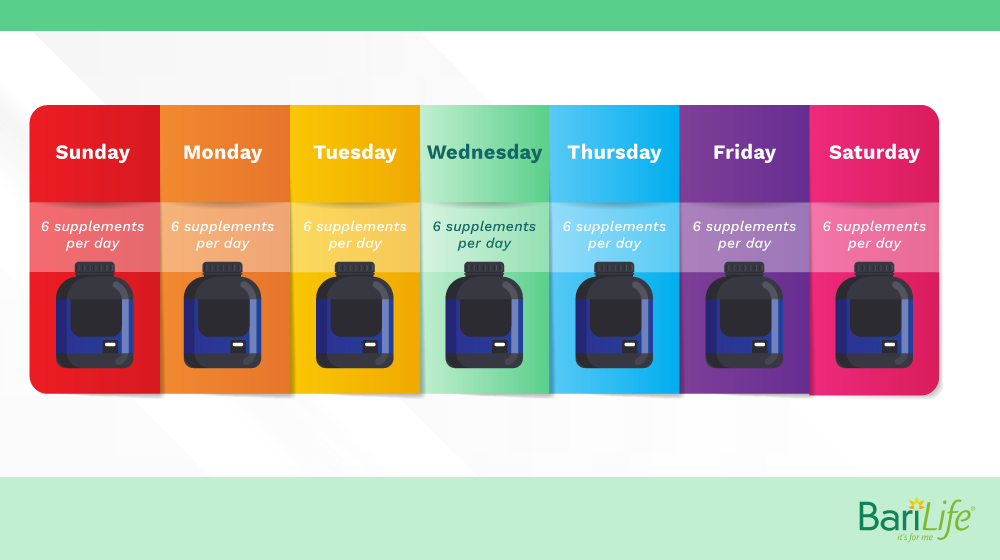
Week Two
You will continue supplement intake, but you will slowly incorporate whole foods back into your diet. When reintroducing foods, you should continue to consume high protein, low volume foods.
- Days 8-9: Four (4) Supplements and One (1) Whole Foods Meal
- Days 10-11: Three(3) Supplements and Two (2) Whole Foods Meals
- Days 12-14: Two (2) Supplements and Three (3) Whole Foods Meals
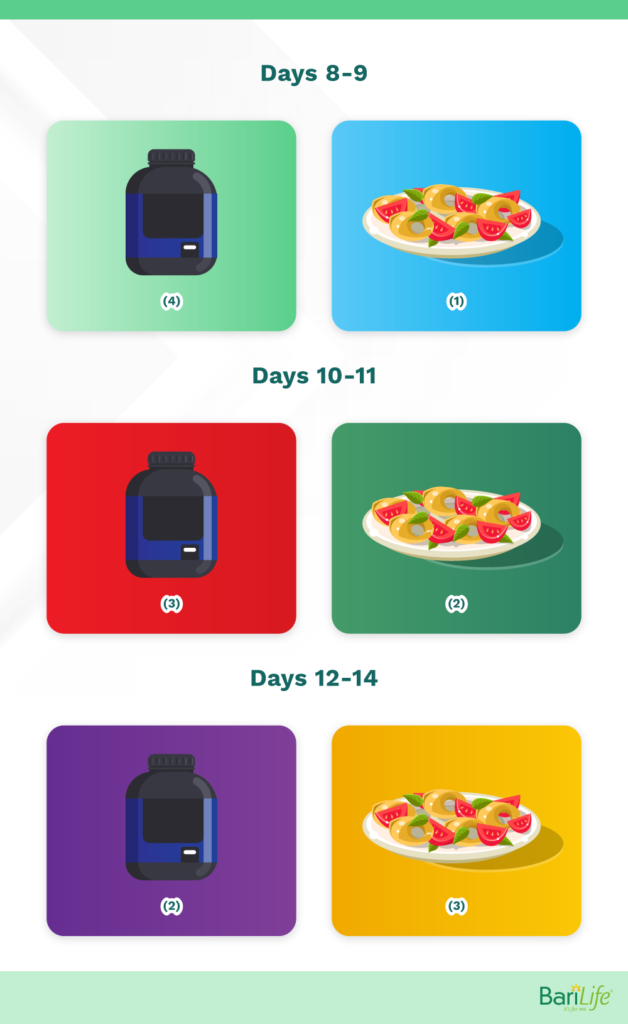
Here is a breakdown of the 5-day plan:
The 5-day plan may seem a lot easier because it is shorter, but there is less solid food intake. The first couple of days will consist of only liquid supplements followed by an introduction of solid supplements for the last few days. There is no whole food intake during the 5-day plan.
- Days 1 – 2: Liquid Supplements
- Days 3 – 5: Liquid + Solid Supplements

Here’s what the pouch reset diet is not
The pouch reset diet is not a way to shrink the size of your gastric pouch. There is no scientific evidence that this diet will change the anatomy of your stomach and make it smaller.
It is also not a long-term diet. The pouch reset diet should not be used frequently or for longer than the suggested time. It is a very low-calorie diet and that is intended for short-term use only.
The pouch reset diet is not a magic fix! In order to achieve long-term weight loss goals, you will need to incorporate sustainable diet and lifestyle habits into your day-to-day life. If you are struggling to find the long-term solution that is right for you, consider consulting a registered dietitian to help you to achieve your goals.
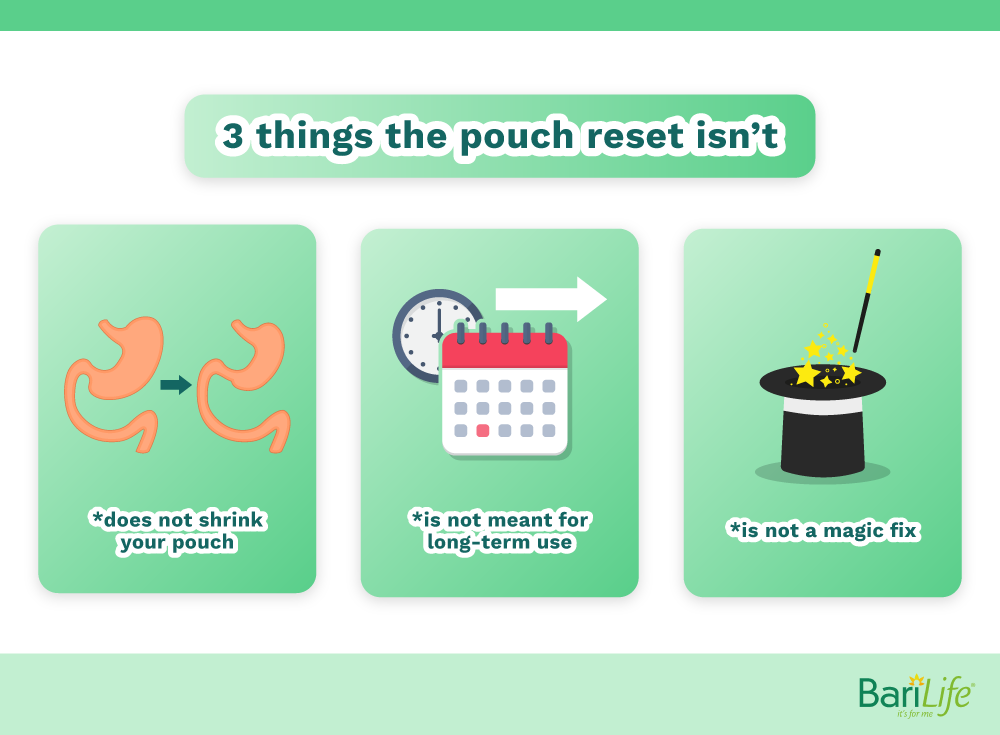
A few more things to keep in mind
Following bariatric surgery, you need to work to incorporate healthy diet and lifestyle habits in order to achieve your weight loss goals and to maintain that weight loss. If you begin to plateau and need to reset and get back on track, then you can consider trying the pouch reset diet to try and curb your hunger and reset your portion sizes.
Following the pouch reset diet, it is still necessary to follow a healthy diet and lifestyle. It is important to remember the different factors that contribute to weight regain following bariatric surgery.
The most important factors include:
- Noncompliance to diet
- Noncompliance to exercise
- Stretching of the gastric pouch
In order to achieve the results you are looking for, it is necessary to comply with both diet and exercise throughout your weight loss journey. Focus on keeping your portion sizes small but hearty by incorporating high-protein foods.
If you feel like you need additional help, reach out to a bariatric team of physicians and/or dietitians and they can help guide you and get you on the right path to success!


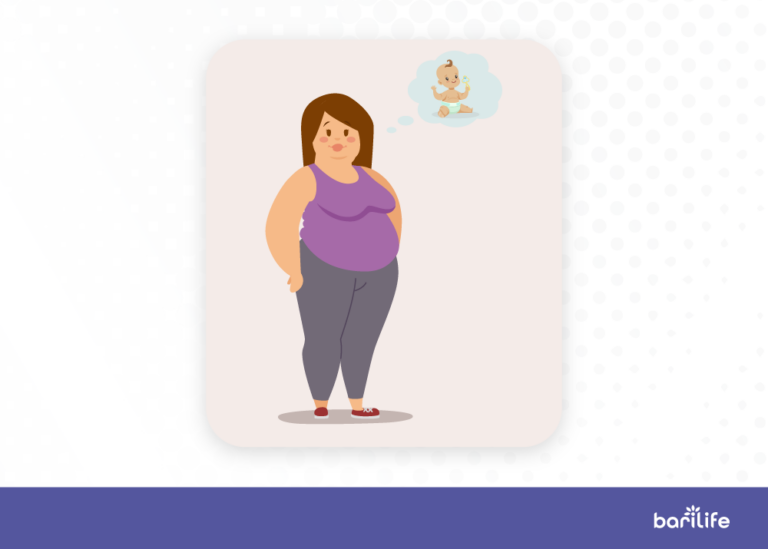
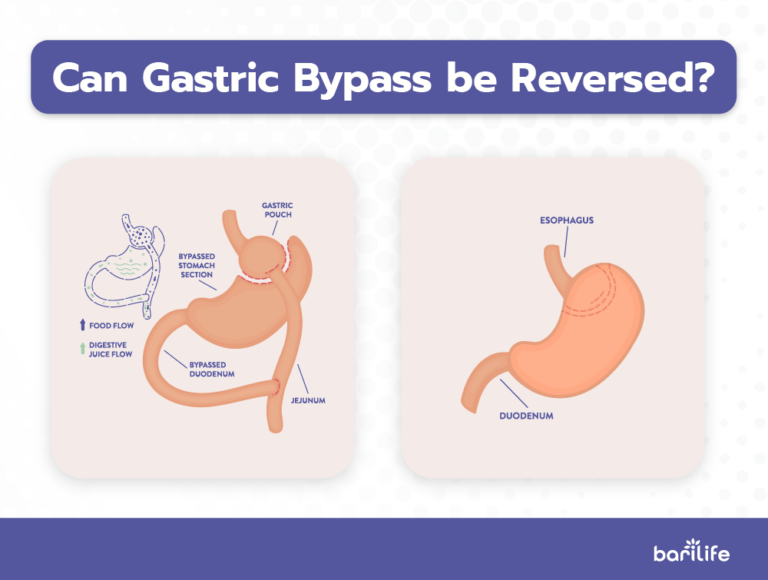
Hey, this is a great post, so clear and easy to understand. All your hard work is much appreciated.
building maintenance
facility management
real estate management
Hi! Thanks. We’re glad to help you. 🙂
Eat slow enough that you know you are full in time to stop. If you don’t it can be painful and you may regurgitate or vomit.
I found this helpful. I had a sleeve done three years ago which was successful for the first year. I then went back to drinking alcohol on a regular basis and combined with that was not as good about my eating and exercise regime. I put 40% of my lost weight back on. I have now stopped alcohol and have reset my eating regime and am losing the weight I put back. It was a reality check but something that has taught me a great lesson.